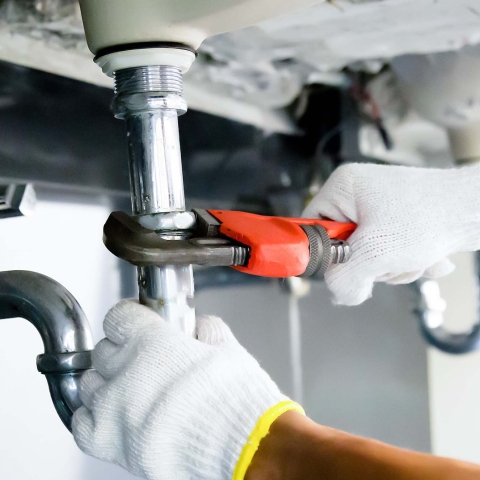Risk Control Tips for Plumbing Contractors

Important tips to help you protect your plumbing business
Running a successful plumbing business requires more than just technical expertise. It also involves effectively managing risk.
Here are important tips to help you protect your plumbing business:
Hire Qualified and Trained Staff: With a well-trained, skilled, and licensed team, you'll minimize the chances of mistakes or issues. Investing in ongoing training and professional development will also ensure that your staff stays updated on the latest techniques, technologies, and safety practices.
Boost Safety with Training: Make sure to enforce strict adherence to safety protocols and provide your employees with proper safety training and equipment. Host safety meetings and workshops focused on safety precautions and regulations.
- Exposure to harmful chemicals and materials: Corrosive drain cleaners, solvents, and other chemicals can cause skin irritations, burns, or respiratory issues if inhaled. Additionally, old plumbing systems may contain lead or asbestos. You and your team must wear appropriate personal protective equipment (PPE) such as gloves, masks, and eye protection, and follow proper procedures for handling and disposing of hazardous materials.
- The risk of slips, trips, and falls: Plumbing work often involves navigating through confined spaces, climbing ladders, or working on elevated surfaces, which increases the chance of accidents. Wet floors, debris, and poor lighting can contribute to slip and trip incidents. Prioritize housekeeping, keep work areas well-lit, and use fall protection equipment when working at heights.
- Electrical hazards: Working closely to electrical systems or appliances can result in electrical shocks or electrocution. It is crucial to be aware of electrical safety procedures, turn off power sources when necessary, and use insulated tools to reduce the risk of electric shock accidents. Additionally, ensure all electrical systems are up to code and properly grounded.
More information on health and safety is available from OSHA.
Maintain Quality Control and Your Equipment: Stress the importance of quality control in all areas of your plumbing projects. From selecting materials to executing the work, make sure that high standards are upheld. Poor-quality work can lead to call-backs, potential legal disputes, and reputational harm. Regularly maintain and inspect your equipment and vehicles. Faulty equipment can cause delays, accidents, and impact the efficiency of your work.
Conduct Thorough Site Reviews: Take time to conduct site assessments. This will help you identify potential hazards, structural weaknesses, and any environmental factors that could impact the job.
Ensure Detailed Contracts: Clearly outline the scope of work, timelines, payment terms, and responsibilities. Don't forget to keep records of all communication, change orders, and any deviations from the original plan to avoid misunderstandings.
Vet Subcontractors: If you use subcontractors, make sure to thoroughly review them. Ensure they have proper licenses, insurance, and a good history.
Review Your Finances: Keep a close eye on your financial health and maintain an emergency fund. Avoid projects that could strain your resources or expose you to undue financial risk.
Secure Insurance Coverage: Having the right insurance coverage is crucial. The correct policies can help protect your business from financial losses in case of accidents, damages, or legal claims.
By implementing these risk control tips, you'll help protect your plumbing contracting business.
Contact a local Indiana Farmers Insurance agent today for a quote for your plumbing business and help protect what matters most to you.
The information presented in this document is for informational and educational purposes only. It is intended to assist individuals, farmers, and business owners in identifying common hazards/risks and considering proactive loss prevention or loss mitigation actions. For information related to specific loss hazards, please contact your insurance agent.

